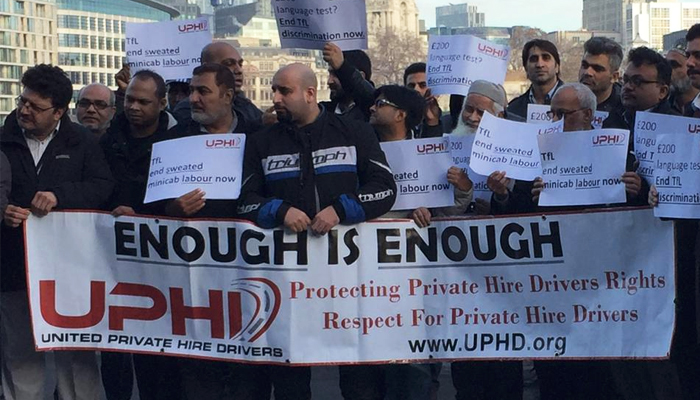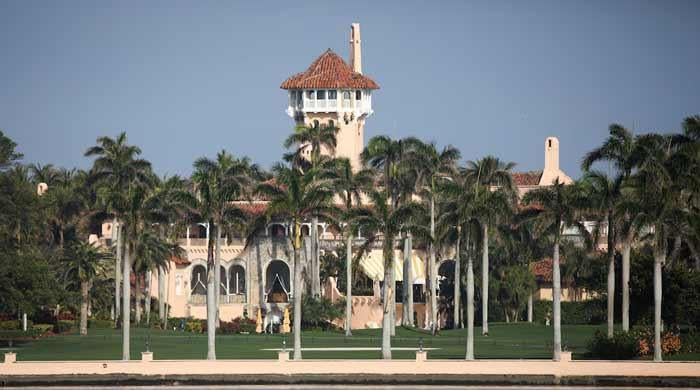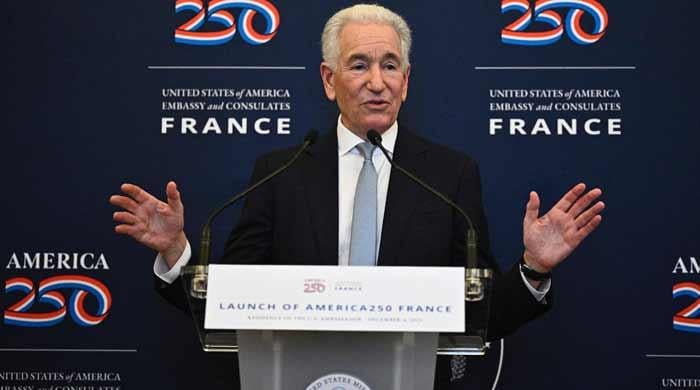British-Pakistanis more vulnerable to COVID-19 than majority UK population: report
Research suggests economic deprivation, health conditions exacerbating virus risks for minority communities
May 02, 2020

LONDON: British Pakistanis are almost three times more likely to die from the COVID-19 virus in the United Kingdom (UK) as compared to the majority community in the country, according to a recent analysis by the Institute of Fiscal Studies (IFS).
There are around 1.5 million Britons of Pakistani origin who mainly hail from Azad Jammu and Kashmir and are settled in Britain since the 1970s, mainly in London, Birmingham, Bradford, Manchester and other northern towns.
The IFS report found that per capita deaths among the minority Caribbean population in English hospitals are three times those of the majority British population. The IFS report suggested that minority groups should have fewer deaths per capita than the British majority, given the average age profile and geographic locations.
Also read: Another British-Pakistani doctor loses life to coronavirus
Minority deaths still high after accounting for differences
While many minority groups live disproportionately in cities such as London and Birmingham, which have more COVID-19 deaths, most are also younger on average than the population as a whole, which should make them less vulnerable.
But the study found that after accounting for differences in age, sex and geography, minority Caribbean deaths are still 1.7 times those of majority British, Pakistani deaths are 2.7 times as high, and minority African fatalities 3.5 times higher.
More than 20% of minority African women of working age are employed in health and social care roles.
Also read: Coronavirus shatters silver screen dreams for India's Bollywood
Underlying health problems exacerbate risks
Pakistani men are 90% more likely to work in healthcare roles than their British counterparts and while the Indian ethnic group makes up just 3% of the working age population of England and Wales, they account for 14% of doctors.
Another possible factor behind disproportionately high death rates could be underlying health problems - two-thirds of Bangladeshi men aged over 60 have a long-term condition that would put them at particular risk from infection.
Earlier, a research by The Intensive Care National Audit and Research Centre showed that Black and Minority Ethnic (BAME) UK residents formed 35% of the total coronavirus cases while being only 14% of the total population.
Also read: UN hails Pakistani peacekeepers’ role in Congo flood rescue operations
This disproportionate representation has raised serious concerns and deliberation as to why ethnic minorities, including British-Pakistanis, African-Americans, Indians and Bangaldeshis are at a significantly higher risk of suffering from this viral disease.
IFS also showed that almost 1.5% of British-Pakistanis above the age of 45 were suffering from a heart condition which might have made them more vulnerable to succumbing to COVID-19.
Another reason for the disproportionate representation of British-Pakistanis might be the fact that they account for 18.2% of the total 'key workers' in the UK. Key workers include National Health Service (NHS) staff, Social workers, transport workers, police, journalists and delivery workers. British-Pakistanis are also 90% more likely to work in healthcare than majority British men.
Also read: UK universities hit by virus outbreak fallout
Economic deprivation also a factor
While many argue that these factors alongside genetic and cultural practices might be the cause of the disproportionate representation of British-Pakistanis, others believe that economic deprivation might also be a factor which contributes to the disproportionate representation.
Professor Lucinda Platt, from the London School of Economics and the report's co-author, commented: “There are striking differences in economic vulnerability between ethnic groups. Bangladeshi men are four times as likely as White British men to have jobs in shutdown industries, with Pakistani men nearly three times as likely; and household savings are lower than average among Black Africans, Black Caribbeans and Bangladeshis. By contrast, Indians and the largely foreign-born Other White group do not seem to be facing disproportionate economic risks.”
Meanwhile, Dr Zubaida Haque who serves as deputy director of the Runnymede Trust said: “It is bringing into sharp relief the health and economic inequalities among ethnic minorities, which Runnymede trust have been saying is absolutely critical to understanding why some ethnic minority groups are bearing the brunt of Covid-19 but I think we need to go a step further and say it’s not enough to just observe and recognise that.”
NHS England's national medical director Professor Stephen Powis said on Friday that NHS staff from BAME backgrounds were being offered specialised assistance. Speaking at the daily Downing Street briefing, Prof Powis said he "absolutely recognised" their worries and concerns.
National testing co-ordinator Professor John Newton said there was evidence of a "small" but "important" discrepancy when it came to the number of people from BAME backgrounds that had died with coronavirus.
"The statistics do show increased rates in some people from ethnic backgrounds. The effects are relatively small, although very important, and we do need to also look at other aspects of the virus. There is cause for concern, definitely, and we are talking to NHS England about any advice that should be given based on the data."












